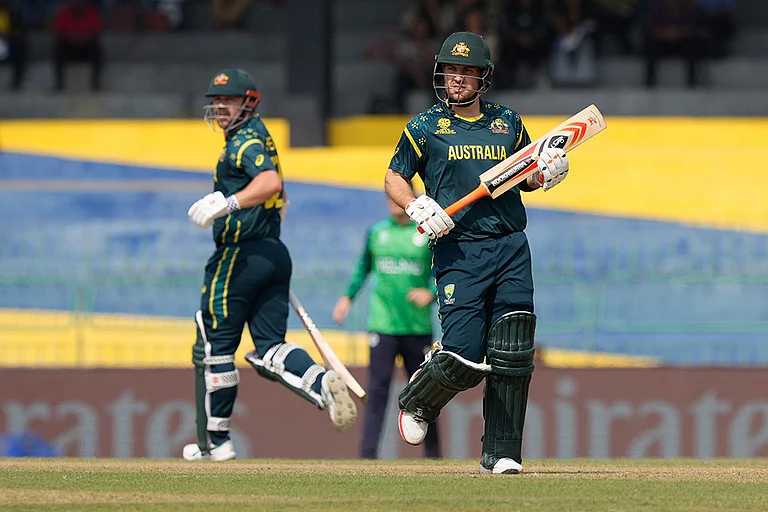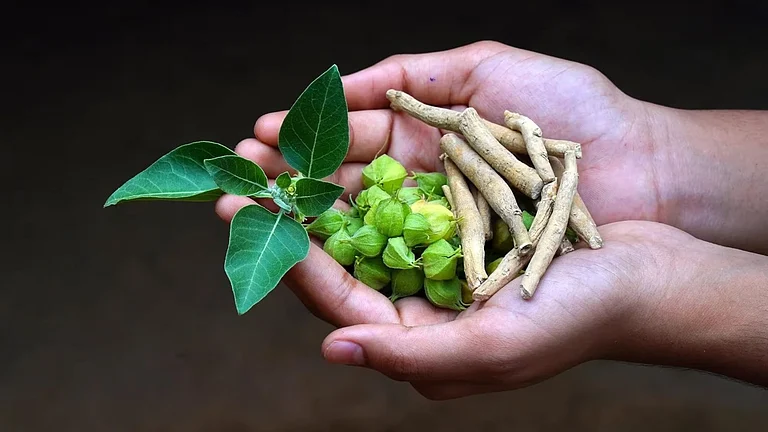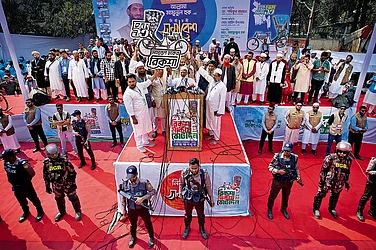Sikhs for Justice chief Gurpatwant Singh Pannun, a designated terrorist in India, has alleged the Indian government wanted to kill him for running the global Khalistan referendum voting campaign.
He has put onus of his security on US.
“It is a challenge to American sovereignty. It is a threat to freedom of speech and democracy in America itself. But I will let US authorities speak more on this,” Pannun has told Time in an interview.
Last week, India said the US shared inputs on a nexus between organised criminals, gun runners and terrorists during the course of recent discussions, and relevant departments were examining them, after the Financial Times reported that American authorities thwarted a plot to kill Pannun on US soil.
The Joe Biden administration, too, confirmed that the US, at the senior most levels, raised the concern with India and expected those deemed responsible to be held accountable. India, according to the US, was surprised and concerned when the issue was raised, and told Washington DC that this was not government policy and will investigate the matter.
The remarks by the ministry of external affairs (MEA) came in response to the report in the London-based newspaper which also suggested that the US warned India against any involvement in a plot to kill Pannun, a Sikh extremist the government of India officially designated as a terrorist but who also happens to be a dual American and Canadian citizen.
During the interview, when Pannun was asked that he had reportedly angered Indian officials after issuing a video where he warned Sikhs not to fly on Air India because it would be “life-threatening,” the Khalistani separatist replied, "I was saying ‘boycott’ Air India, but the whole Indian narrative shifted to ‘bomb’ Air India. Somebody has to be a zombie to not differentiate between boycotting and bombing.
Pannun faced charges of terrorism and conspiracy earlier this month, following the posting of the video.
“So they cannot afford for me to be alive as I have achieved a narrative. I'm able to educate, and peacefully and democratically challenge India's narrative of terror and terrorism. There are reports from Human Rights Watch, Amnesty International, the US Department of State in 1994, and other agencies about what transpired between 1984 to 1995. But we haven’t had a peaceful and democratic resolution to the contentious issue that has never been asked since 1950: should Punjab be an independent country? It was never asked of the people of Punjab in 1947, nor has it ever been put up on a ballot," Pannun told TIME.
He added, “We are going to open this question up through the Khalistan referendum voter registration in Punjab on January 26, 2024."
In September, Canada’s Prime Minister Justin Trudeau had said there were “credible allegations” linking agents of the government of India to the killing of Nijjar, another designated terrorist who happened to be a Canadian citizen.


























